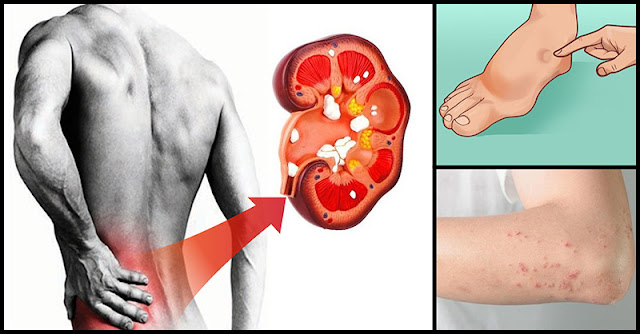Some people might be living with kidney disease without knowing it. Though there are a number of physical signs attributed to kidney disease, people sometimes link them to other conditions. There were also situations wherein those with kidney disease tend not to experience symptoms until the time when there are large amounts of protein in their urine or their kidneys are failing.
You are at risk of a kidney disease if you have diabetes, a family history of kidney failure, high blood pressure, or if you are older than age 60. The only way to surely know if you have kidney disease is to get tested annually and know these possible signs which are linked to having a kidney disease.
Here Are The Signs And Symptoms Your Kidney May Be In Danger
Feel The Need To Urinate More Often
Urinating more often, particularly at night, can be a sign of kidney disease. There is an increase in the urge to urinate when the kidneys’ filters are damaged. Or in some cases, this symptom has also been linked to urinary tract infection or enlarged prostate in men.
Having Trouble Sleeping
Toxins stay in the blood when the kidneys are not functioning properly, thus making it difficult to sleep. A link was also found between obesity and chronic kidney disease – wherein sleep apnea is more common.
Have Less Energy, More Tired Or Having Trouble Concentrating
The buildup of toxins and impurities in the blood is the result of a severe decrease in kidney function.
A severe decrease in kidney function can lead to a buildup of toxins and impurities in the blood. This can cause people to feel tired, weak and can make it hard to concentrate. Another complication of kidney disease is anemia, which can cause weakness and fatigue.
Poor Appetite
Your poor appetite can be the result of toxin buildup resulting from reduced kidney function.
Experiencing Persistent Puffiness Around Your Eyes
An early sign that the kidneys’ filters have been damaged is a protein in the urine. Rather than keeping the protein in the body, your kidneys are leaking a large amount of it in the urine and this causes puffiness around your eyes.
Cramping Muscles
An imbalance in electrolytes can result from impaired kidney function. Having a poorly controlled phosphorus and low calcium levels may contribute to muscle cramping.
Blood In Your Urine
Typically, healthy kidneys keep your body’s blood cells when filtering wastes from the blood to create urine. However, when these filters have been damaged, these blood cells will “leak” out into the urine. Aside from being a signal for kidney disease, a blood in the urine could also indicate infection, tumors, or kidney stones.
Urine Is Foamy
Excessive bubbles in the urine indicate protein in the urine, especially if it requires you to flush it several times before it goes away. The common protein found in urine, albumin, is the same protein that is found in eggs. This foam may look like the foam you see when scrambling eggs.
Ankles And Feet Are Swollen
Decreased kidney function can lead to sodium retention, which causes swelling in your ankles and feet. Swelling in the lower extremities has also been linked to liver disease, heart disease, and chronic leg vein problems.
Dry And Itchy Skin
Healthy kidneys help make red blood cells, remove extra fluid and waste from your body, maintains the right amount of minerals in the blood, and help keep bones healthy. Itchy and dry skin can be a sign of the mineral and bone disease, which frequently accompanies advanced kidney disease. This is because the kidneys are not able to keep the right balance of nutrients and minerals in your blood.









